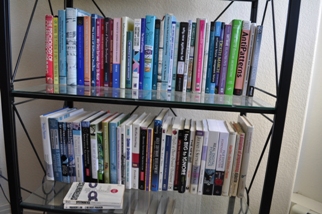Development
Gender differences in coding styles?

In my earlier post on the “thermocline of truth“, I wrote: Second, IT engineers by nature tend to be optimists, as reflected in the common acronym SMOP: “simple matter of programming.” Even when an IT engineer doesn’t have a given subsystem completed, he tends to carry with him the notion that he whip everything into […]
The Wetware Crisis: All Our Sins Remembered – Intro

[Copyright 2008 by Bruce F. Webster. All rights reserved. Adapted from Surviving Complexity (forthcoming).] Humanity has been developing information technology for half a century. That experience has taught us this unpleasant truth: virtually every information technology project above a certain size or complexity is significantly late and over budget or fails altogether; those that don’t […]
Some thoughts on “Up or Out”

[UPDATE: Here are some more observations from Ruby-coloured glasses.] Alex Papadimoulis over at The Daily WTF (one of my favorite IT blogs) has posted a lengthy and thoughtful solution to the problems I raised in my post on the “Dead Sea effect“. Specifically, he refers to the “Up or Out” model, pioneered over a century […]
The Wetware Crisis: the Expert Pool

[Note: I originally wrote about this concept in my first edition of The Art of ‘Ware and was going to include it in version 2.0 of that book. However, my review of the most recent translations of the oldest manuscripts of Suntzu pingfa has led me to re-interpret the maxims for that section. As a […]
Negotiations and Lovesongs: Introduction

[Copyright 2008 by Bruce F. Webster. All rights reserved. Adapted from Surviving Complexity (forthcoming).] Two disappointed believers, Two people playing the game. Negotiations and love songs Are often mistaken for one and the same. — “Train in the Distance”, Paul Simon I used to have arguments with Carol Teasley, one of my mentors, regarding software […]
